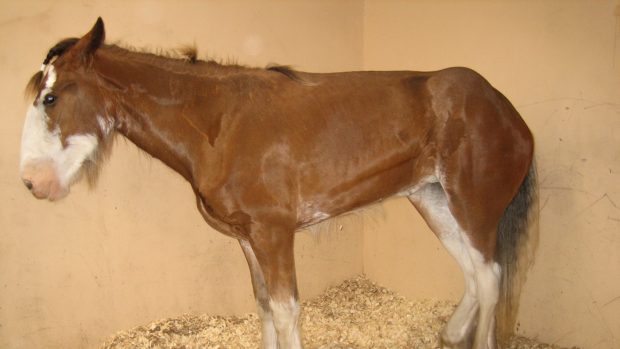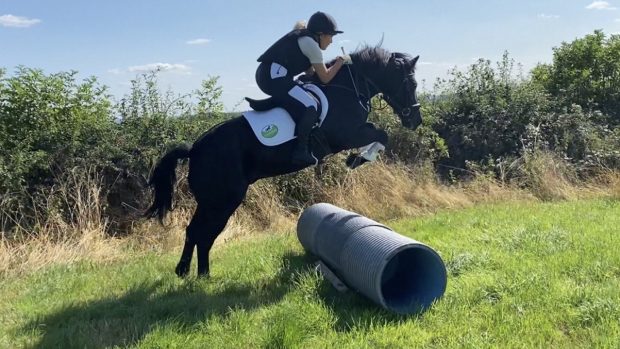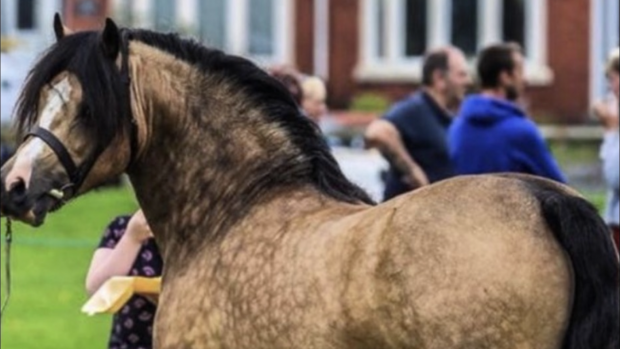A pony that defied the odds and survived a life-threatening condition is taking part in a 300-mile trek.
Candyfloss was diagnosed with acute equine grass sickness (EGS) in June 2013 and has since made a full recovery.
Grass sickness is fatal in 95% and is most prevalent between April and September, especially in Scotland.
The six-year-old mare accompanied by her owner, Leanne MacDonald, set off from her home in Spey Bay, Moray, on 23 May.
The 13hh fell cross cob is also joined by her stable companion Tinkerbelle, a miniature Shetland, and terrier Foxy.
The team is hoping to raise awareness of the condition and money for the Equine Grass Sickness Fund.
Their route is set to take them to the Royal Highland Show on 21 June, where Candyfloss will lead a parade of survivors.
It is set to finish the following day at the Royal (Dick) School of Veterinary Studies in Edinburgh.
Candyfloss’ adventure has not been without drama.
| More about grass sickness |
As they crossed the Cairngorms, the path became increasingly steep and narrow.
The weather closed in and, being unsafe to continue, the trekkers climbed to 700ft and were rescued by Braemar Mountain Rescue.
Leanne spoke about why she decided to take on the walk.
“When EGS paralysis the gut you can see that they want to eat but they simply can’t,” she said.
“It is just such a horrendous thing to go through.”
Candyfloss suffered from weightloss, tremors, difficulty swallowing, sweating, loss of coordination and dropped six inches from her girth.
The trek is part of a series of fundraisers organized by Leanne and four other owners whose horses were affected by the disease – known as the Fabulous Five.
Last month H&H reported that vets were urging owners to be vigilant after a rise in cases of equine grass sickness (EGS) in the past year.
EGS is now thought to be caused by a toxin produced by clostridia bacteria, the same bacteria that, in different circumstances, can cause botulism. They affect the nervous system.
The Animal Health Trust is currently undertaking a trial of a vaccine for the condition.





